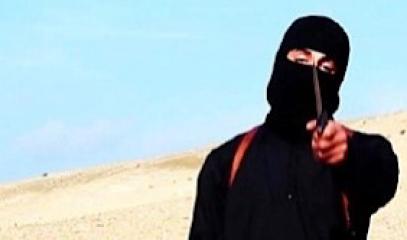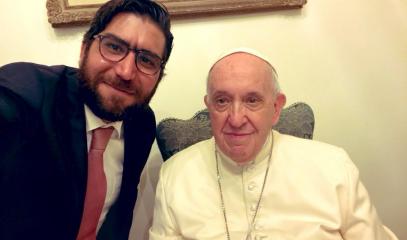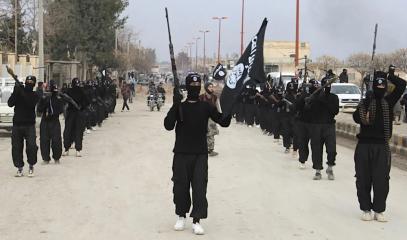Mosul Eye: ten years after Isis, the eyes of a wounded people reborn
On the anniversary of the Iraqi city's fall into the hands of the radical Islamist movement, Omar Mohammed - the blogger who chronicled its brutality - talks to AsiaNews about the importance of remembrance, the pope's visit in 2021 and the challenge of reconstruction based on ‘inclusion’. Chaldean Patriarch Sako: the memory of jihadist violence spurs the construction of a ‘civil and democratic’ state.
Milan (AsiaNews) - These days mark the 10th anniversary of the rise of Isis in Mosul, with its subsequent expansion along the Nineveh plain to conquer half the territories of Syria and Iraq in just two years. An anniversary that, despite the subsequent defeat of the Islamist movement in northern Iraq, for many reasons still represents an open wound, with the fight against radical ideology remaining an unresolved problem. This is what Chaldean Primate Cardinal Louis Raphael Sako says today in a long reflection published on the patriarchate's website. Louis Raphael Sako, who speaks of ‘painful events etched in memory’. In order to prevent similar tragedies from happening again in the future, the prelate once again calls for ‘lasting solutions’ starting with development policies that stop the exodus of Christians. To this the cardinal combines the fight against militias, the study of Christian history and the construction of ‘a State that is truly civilised and democratic’. To recall the decade that has passed since one of the darkest pages in the modern history not only of Iraq, but of the entire global community, AsiaNews interviewed Omar Mohammed, author of Mosul Eye. One of the very rare voices who, at the risk of his life, spent himself in those terrible days to witness the abyss of brutality and barbarity of the militiamen.
"Could it have been avoided? Was there a chance to avert the collapse of Mosul and ‘the dramatic impact’ on its population, on its ‘social structure’ that has been turned upside down, on its history that ‘has changed forever?’ These are the questions posed, 10 years after the rise of the Islamic State (IS, formerly Isis), by the scholar, citizen journalist and blogger Omar Mohammed who, through his ‘Mosul Eye’ page, has recounted the atrocities committed by the jihadists in the city. AsiaNews caught up with him by phone in a location he asked to be kept secret for security reasons, retracing with him the dramatic phases of the fall of the northern metropolis, the reign of terror and the military defeat by the offensive of the Iraqi army with the support of the United States.
‘The eyes’ with which the population witnessed, and recounted as much as possible, the tragedy that was unfolding ‘were our form of resistance to Isis’, the scholar recounts, ‘so we fought back and resisted’, still bearing the mark of suffering on their faces. ‘When I met for almost an hour in private with Pope Francis [on his apostolic journey in March 2021],’ he recalls, ‘he uttered a phrase that disturbed me: looking at me he said he could put a face to the suffering of a people. The pontiff made it clear how the drama of Mosul, the wounds would forever be ‘part of my face’.
Mosul, 10 years later
A decade on, the northern metropolis is a reality that is trying to restart after the jihadist devastation, thanks also to the reconstruction of its most famous monuments - from the al-Nouri mosque to the clock church - and also opening up to tourism. ‘The car bomb against the army headquarters’ in early June 2014 represented ‘the turning point’, because ‘from that moment everything collapsed and our history changed forever,’ says Omar Mohammed. ‘Just in these days,’ he adds, ‘I thought back to those moments and fell into a deep depressive crisis, because I will never be able to understand the level of brutality they brought’ combined with ‘contempt for everything human nature represents.
In the past, the ‘capital of the north’, especially in the aftermath of the 2003 US invasion, had already experienced phases of violence and extremist attacks. Bloody events that had also involved Christians, as witnessed by the death of Fr. Ragheed Ganni in 2007 and the kidnapping a year later, which ended with the discovery of his body, of the then Chaldean archbishop Msgr. Paul Faraj Rahho. ‘Those were episodes,’ explains the blogger and scholar, ‘but after Daesh [Arabic acronym for Islamic State] took control, brutality became systematic, part of the system of government. ‘After the fall of Isis,’ he continues, ‘I had access to the archives and I could see how their idea of government was precisely aimed at imposing a pattern of brutality on people, a method rooted in the Islamic State.
Eyes to narrate terror
During the years of jihadist rule, ‘Mosul Eye’ played a leading role in exposing the violence: a long anonymous blog, which only after the liberation of the city in July 2017 had a name and a face. For more than two and a half years, Omar Mohammed proved to be one of the very few reliable sources documenting life under Isis, beheadings, devastation and ethnically and denominationally motivated massacres on Facebook, Twitter and Wordpress when social media were unreachable. The extremist group conquered the metropolis and villages of northern Iraq between 4 and 10 June 2014, triggering a massive exodus of persecuted Christians, Yazidis and other ethnic groups. In the following weeks, he extended his dominance over the Nineveh Plain, triggering a humanitarian emergency with hundreds of thousands of people fleeing. ‘Looking back on that period,’ he says, ‘the work of “Mosul Eye” emerges more clearly, without which there would have been no other sources except the official Isis narrative’. Today, however, the city ‘has its own story to tell, and this is the most important aspect: the people of Mosul have had eyes to witness’, they have not looked away from a tragic reality, making storytelling ‘a form of resistance’ to Caliph Abu Bakr al-Baghdadi and his men. So that this horror of beheadings, executions, mass graves, ‘extermination camps’ and minors executed for listening to music ‘would not remain hidden and not be lost, forgotten’.
A work, reread in retrospect, that is ‘also very important for the future of the city’, laying the foundations for a true reconstruction that is not only of infrastructure, churches, mosques, buildings and craft or business activities, but first and foremost social, human. ‘People,’ he explains, ‘have a tendency to remove, to get on with their lives. That is why I launched a project to collect oral testimonies by meeting Christians, Muslims, Yazidis, recording their personal and collective history, preserving it for future generations. People who want to remember, so that this does not happen again' such as the Killing fields or the Tuol Slegn prison in Cambodia, the concentration camps “like Mauthausen that I visited recently”. In this regard, he offers two examples: on the one hand, ‘the attempt to protect and preserve the buildings used by Isis for the massacres’, preventing them from being ‘destroyed as the government did with the one where the executions took place’. Then there is the memory of people who sacrificed themselves, including the Muslim university professor Mahmoud Al ‘Asali who died to save Christians. "Our mission today is to make people remember. This is why his family wanted to donate his texts, books and manuscripts to the Mosul library, inside which there is a corner dedicated to him".
The Pope, memory and inclusion
Ten years after the rise of Isis, the picture in Mosul remains ‘complicated’, there is ‘much to be done’ and for many ‘the wound is still open’. ‘We need to work to create a social system in which there is not only diversity, but also inclusion,’ stresses Omar Mohammed, insisting on the latter element as a key factor for true reconstruction. ‘An inclusion,’ he adds, ‘whereby religion or ethnicity is no longer an element of fear or a trigger for violence’ for Christians and Muslims, for Sunnis and Shiites, for Yazidis and other minorities in the area. To this he adds the need to control ‘the Shia militias’ active in Mosul as well as in the Nineveh plain, which are often the source of or nourish lawlessness and new ethnic-confessional violence, an element already denounced in recent years by Christian leaders.
Among the most significant moments of the post-Isis renaissance phase, the blogger highlights the visit of Pope Francis in March 2021, his personal meeting ‘that lasted almost an hour’ with the pontiff, and ‘the snapshot that I keep on my desk (in the photo) as a precious memento’. ‘His presence [in a historical phase still marked by closures and travel restrictions due to the Covid-19 pandemic, ed] created a sense of trust between communities, because,’ he recounts, ‘he wanted to meet Christians, Muslims, Yazidis, sending a message of hope, of healing’. Of the hour spent together, he recalls one sentence in particular that ‘disturbed me: after seeing me, the pope said “Now I can put a face to the suffering of the people of Mosul”. Thanks to his words,' he continued, “it became clear to me too how much the suffering [under Daesh] was forever etched on my face”. At the same time, the visit left a deep sense of ‘pride’.
The scholar has personally initiated and supported four projects in recent years: the library; the oral and written collection of documents, stories and testimonies; the attempt to preserve Mosul's Jewish heritage by reconstructing their presence in the past (those who fled or were expelled between 1948 and 1950 after the birth of Israel); and the reforestation plan to restore a ‘green’ face to the city. ‘Four initiatives with four different perspectives,’ he says, ‘and the common goal of bringing society together, creating new bonds. "Even today there are signs of the passage of Isis: radicalisation, extremist ideology in some areas and we must not delude ourselves that it has disappeared. We must start from here and work,’ he concludes, “to strengthen education, nurture the culture of life with special attention to young people, to future generations, according to the principle of inclusiveness”.
GATEWAY TO THE EAST IS THE ASIANEWS NEWSLETTER DEDICATED TO MIDDLE EAST. TO RECEIVE A WEEKLY UPDATE EVERY TUESDAY, CLICK HERE.










.png)










